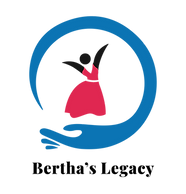The Power of Vision Journaling: Journaling Course
- Nyasha B Dube

- Feb 17, 2025
- 3 min read
Journaling is more than just a habit; it is a powerful tool for self-reflection, growth and healing. Throughout our journaling course, we have uncovered the many layers of this transformative practice. From setting clear goals to overcoming obstacles, each module provided us with the tools to build resilience and nurture our well-being.
Be SMART!
One of the most impactful lessons we learned in our fifth module was the importance of being SMART in our goal-setting process. SMART stands for Specific, Measurable, Achievable, Relevant, and Time-bound. These criteria allow us to craft meaningful and realistic goals that keep us focused and motivated on our healing journey.
Setting SMART goals helps us turn vague aspirations into actionable steps. For instance, instead of saying, "I want to feel better," a SMART goal would be, "I will journal for 10 minutes every evening before bed for the next month to track my emotions and recognize patterns in my healing process." This level of specificity makes a goal tangible and achievable.
Alongside goal-setting, we also explored vision journaling, a technique that allows us to map out our ideal future in vivid detail. Through writing, we paint a picture of what we hope to achieve, reinforcing our aspirations and making them feel more attainable. Vision journaling is particularly powerful because it aligns our emotions and thoughts with our desired outcomes, helping us stay committed to our growth.
To bring our visions to life, we engaged in practical activities such as the 5 Senses Vision Board. This exercise encouraged us to visualize our healing journey using our senses—what we see, hear, feel, taste and smell when we have reached our goals. By immersing ourselves in this sensory experience, we strengthen our commitment to self-improvement and build resilience in the face of challenges.
Staying Motivated and Overcoming Challenges
As we moved into our final module, we addressed one of the most significant aspects of journaling: maintaining motivation. While setting goals and creating visions are essential, staying committed to the practice is what ensures long-term success. We acknowledge that the journey is not always easy; obstacles and setbacks are inevitable. However, resilience and consistency are the keys to overcoming these hurdles.
One of the core discussions in this module was integrating journaling into our daily lives. To make journaling a sustainable habit, we explored several strategies:
1. Linking journaling to existing habits: By tying journaling to an already established routine, such as having morning coffee or winding down before bed, we create a natural rhythm that makes it easier to maintain consistency.
2. Using prompts: Sometimes, staring at a blank page can feel overwhelming. Using prompts—such as "What was a small win I experienced today?" or "What is something I am grateful for?"—helps overcome writer’s block and encourages reflection.
3. Creating a journaling routine: Setting a designated time each day for journaling establishes structure and commitment. Whether it’s five minutes or thirty, the key is making it a part of our day.
4. Being flexible: Life happens, and sometimes we might miss a journaling session. Instead of being discouraged, we learned to be kind to ourselves and pick up where we left off. The goal is progress, not perfection.
Through these strategies, we cultivated a mindset of persistence and self-compassion, ensuring that journaling remains a long-term practice rather than a short-lived effort.
Call to Action
As we conclude our journaling course, we carry forward the wisdom and inspiration that have shaped our journey. Let us continue to embrace journaling as a tool for transformation. Let us be SMART in our goal-setting, intentional in our vision and unwavering in our commitment to self-improvement. And above all, let us extend the power of journaling to our communities, uplifting others through our words and experiences.
Your story matters. Your healing journey is valid. Keep writing, keep reflecting, and keep moving forward. This is only the beginning.




Comments